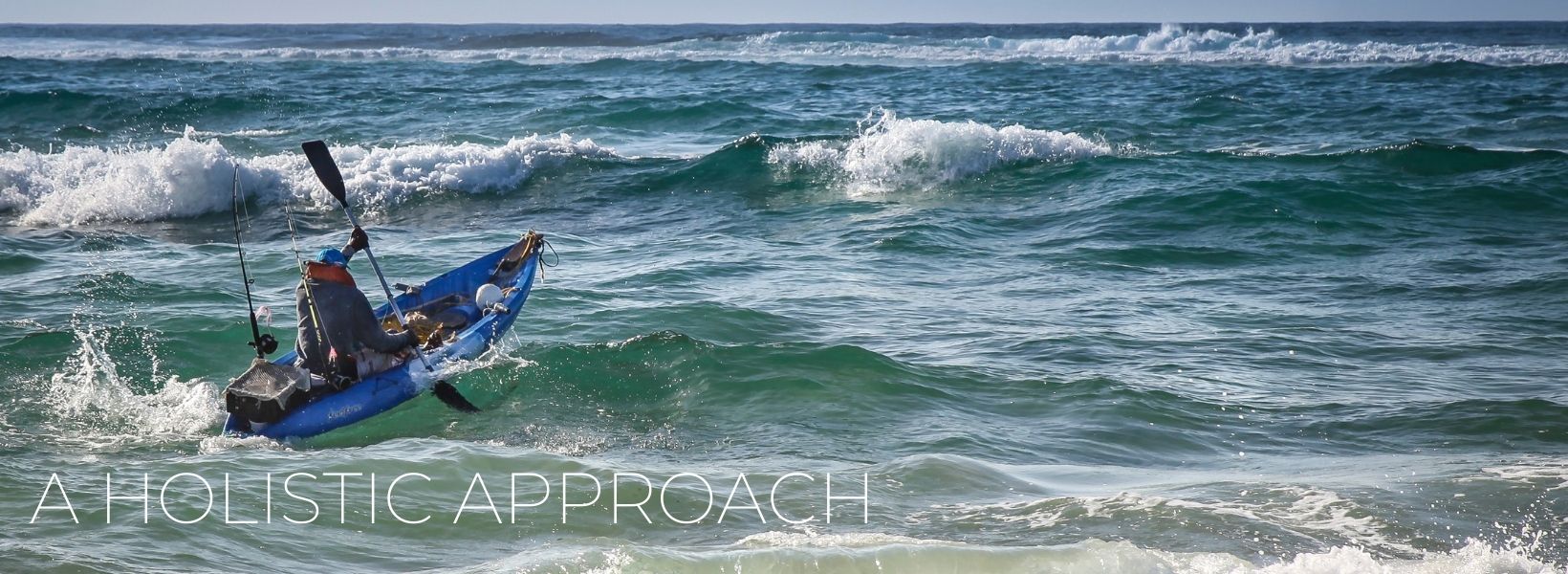
Love The Oceans believes in a community-led, holistic approach to conservation. Through comprehensive biodiversity and sustainability research, educational outreach and capacity-building community workshops in sustainable fishing, Love The Oceans aims to facilitate the transition from current unsustainable fishing practices and targeted elasmobranch fisheries towards sustainable fishing supplemented by alternative livelihoods.
The first step in any successful conservation effort is to understand the underlying cause of the issue. Through our comprehensive research Love The Oceans is collecting baseline data to understand and document pressing conservation issues across our three main research sites; Guinjata, Paindane and Coconut Bay. We are monitoring the development of current conservation issues through our continuous research. The combination of solid baseline data and continuous sampling effort ensures the development of clear, achievable biodiversity targets and framework for the implementation of a successful community-led Marine Protected Area in the Inhambane Province.
The next integral step is to enable and empower our communities to solve the critical conservation and sustainability problems that are negatively impacting their livelihoods. At Love The Oceans the core of our community-led conservation approach is our Educational Outreach: We work with active fishermen running workshops on sustainable fishing and educate the next generation of fishermen by teaching Marine Resource Management and Sea Safety at two local schools; Guinjata and Paindane School. Equipped with the right tools and knowledge our communities are enabled to successfully transition towards sustainable fishing, ending elasmobranch fishing and establishing a Marine Protected Area with a long-term, sustainable outcome beneficial for both ecosystems and communities.
The final step in Love The Oceans’ community-led conservation approach is to develop and implement alternative sources of food and income through our Sustainable Livelihoods and Ocean Conservation Champion Programs. Ecotourism is a major industry currently generating an estimated US$10.9 million in direct revenue to dive operators in the Inhambane Province annually, and with a direct economic impact of US$34.0 million annually. Sustainable ecotourism and other alternative sources of income can ensure both sustainable livelihoods for the local communities and the protection of vulnerable ecosystems and species.
Through our Research, Educational Outreach and Community Outreach Programs Love The Oceans is taking a holistic, community-led approach to conservation leading the sustainable development towards the end goal of establishing a Marine Protected Area through a community-led, bottom-up approach.
WATCH OUR FOUNDER'S SPEECH AT COP26 ON THE IMPORTANCE OF A HOLISTIC APPROACH TO COMMUNITY CONSERVATION:
OUR IMPACT
Love The Oceans believes in working towards a clear, achievable and focussed goal, and producing clear, measurable results. To date Love The Oceans has:
- Established the area as a Mission Blue Hope Spot
- Hosted +250 volunteers over 6 seasons.
- Collected 8 years of data on small-scale, artisanal fisheries, and conducted initial sustainability assessments.
- Reviving the Community Fisheries Council (management body for fisheries regulations) for better management of marine assets.
- Collected 6 years of biodiversity assessments on local coral reefs, and conducted initial assessments of biodiversity and coral reef health.
- Collected 5 years of humpback whale surveys.
- Collected 5 years of oceans trash research, removing over 1 tonne of marine debris from our local beaches.
- Launched our Trash 2 Trade initiative aiming to turn waste into a resource by melting and upcycling ocean plastic into new items.
- Taught over +2000 children at primary school level about Marine Resource Management.
- Built 14 new classrooms at two local schools, bringing both the schools up to 10 solid classrooms – enabling access to local high school education for both communities.
- Taught over 3000 children to swim over 4 seasons, and run 4 seasons of intensive swimming workshops.
- Qualified the first ever women in our area as swim teachers, lifeguards and scuba divers.
- Secured Aquatic Helper certificates for 8 students from our Ocean Conservation Champion Initiative.
- Two of our Ocean Conservation Champions are now PADI Advanced Open Water and Rescue qualified.
- Collected 4 years of turtle research
- Launched the first ever turtle patrol team, made completely of local community members. Patrols run every night locating and securing new nests. Patrols appoint 24hr guards for each nest.
- Launch of LTO’s Sustainable Fishing Project in conjunction with the indigenous fishing community. Eventual net elimination has been agreed.
- Received Blue Marine Foundation’s Oceans’ Award, Young Initiative.
- Hosted over 75 free international webinars and talks to over 50,000 people
- Facilitated the production of 2 multi-award-winning documentaries on our work
- Ran the first ever sustainability workshop with Mozambique fishermen
- Launched our Women’s Health Project reaching over 200 women
- Completed a pilot study assessing meso- and apex predator presence
- Launched a coral research project in conjunction with Leeds University for a recruitment and mortality study.
SUSTAINABLE LIVELIHOODS
Most people want to live more sustainably if they’re given the option. However, this is often not possible with such high poverty levels in our area. Some of LTO’s work involves identifying barriers that stand in people’s way of living more sustainably, and then working with those people to remove them. This is show in our swimming projects: with the creation of the Marine Protected Area, the job creation will be in the marine ecotourism space and you need to be able to swim to utilise this, hence our swimming program.
There are many other barriers standing in people’s way of living more sustainably. The most common one in our area is financial. Many people rely on the oceans as both a food source and a source of income. By providing alternate, sustainable sources of income, people do not have to rely on the sea so much, alleviating pressure on the oceans and ultimately aiding conservation. On top of this, when people have a reliable source of income, they have the financial head space to think about sustainability and conservation.
At Love The Oceans, we have a range of sustainable livelihood projects we’re working on, including sustainable honey harvesting, aquaponics and agriculture. In 2020 we launched our Sustainable Fishing Project.

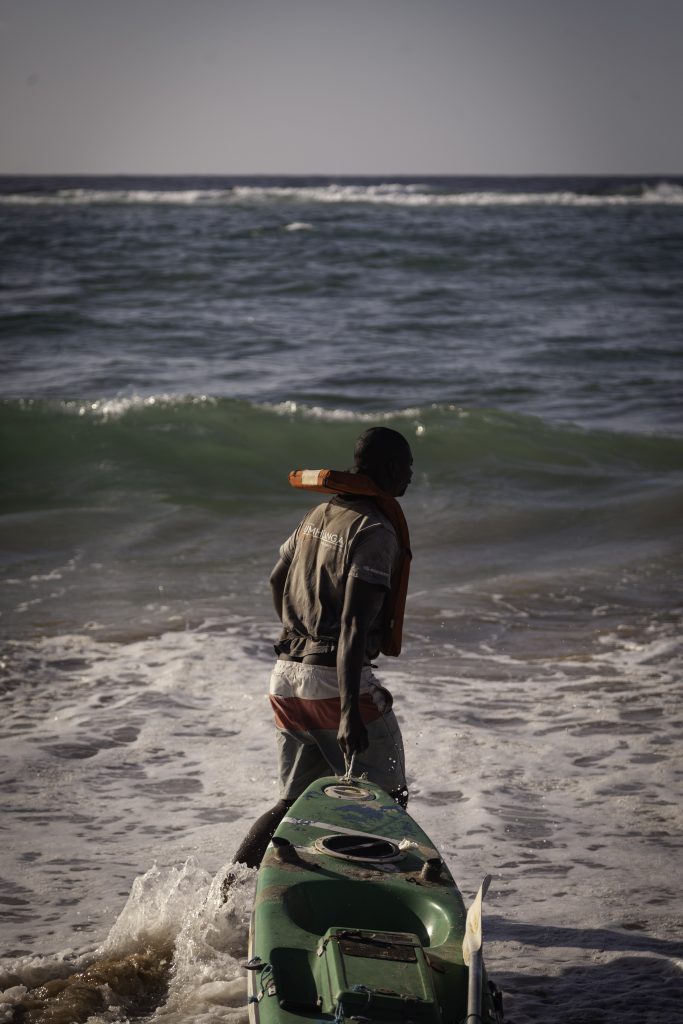
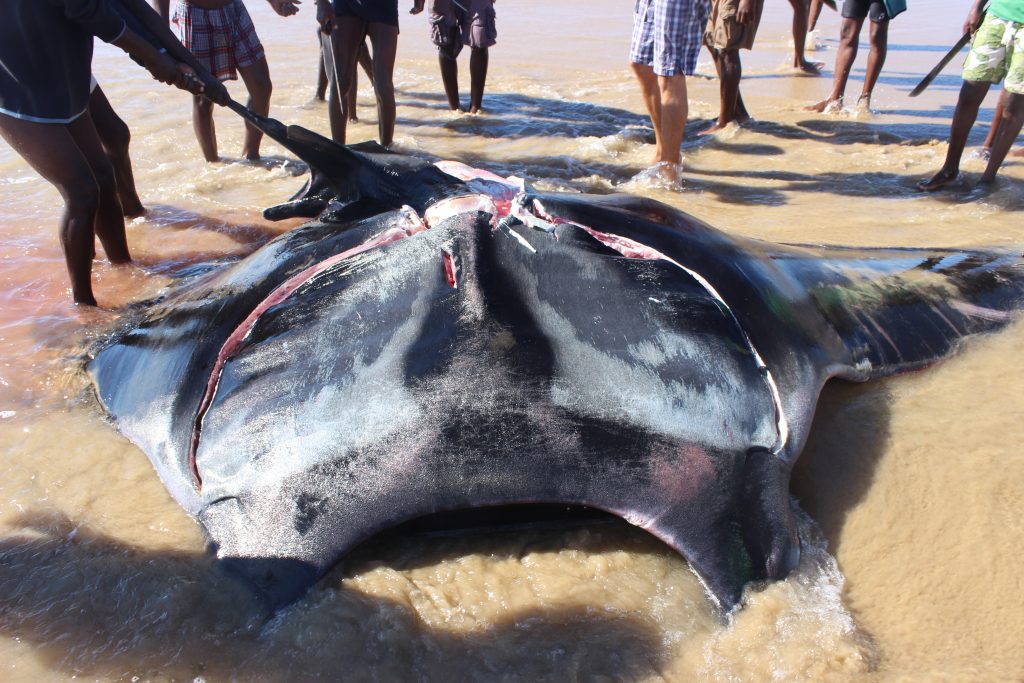
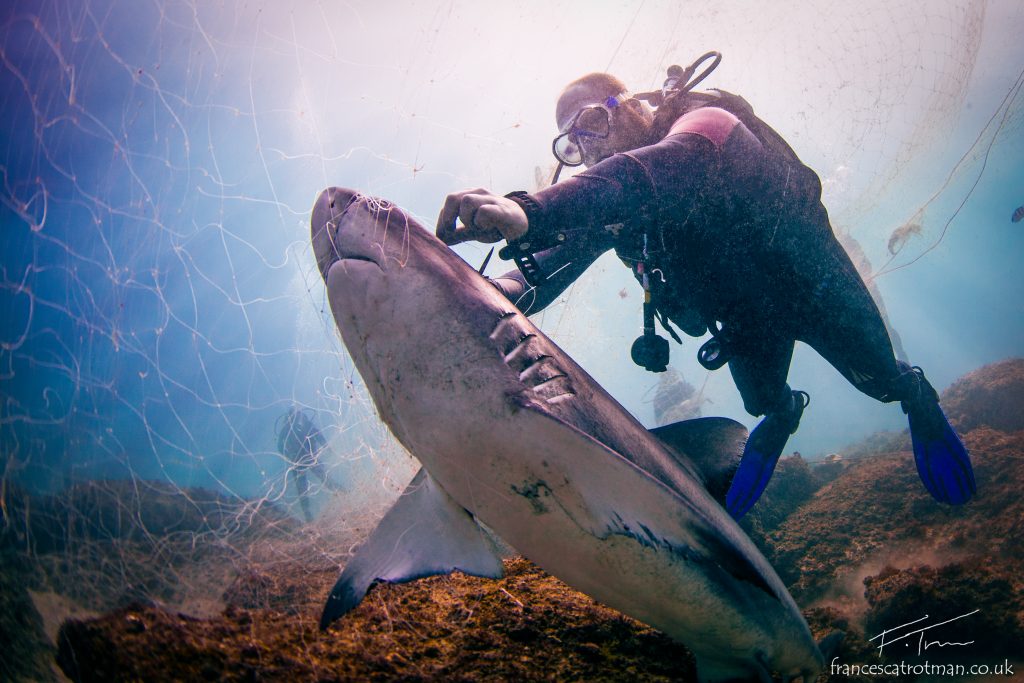
SUSTAINABLE FISHING PROJECT
Our Sustainable Fishing Project (SFP) gives fishermen the opportunity to transition from unsustainable fishing, such as gill netting, to more sustainable methods, such as kayak pole and line fishing. This project is in conjunction with the indigenous fishing communities and is locally led. This will allow the coastal communities of Jangamo to survive this difficult time by harvesting protein from the sea, but allow them to do so in a sustainable manner – a win for the sea, and the people!
LTO is working to provide kayaks, fishing rods and safety equipment on a ‘check in, check out’ basis through our SFP. In order to participate in this initiative, fishermen must give up their current method of fishing if it is gill-netting or spear-fishing. They must also attend a compulsory workshop developed by one of our marine biologists, and delivered by our Community Outreach Manager (COM) who is trained and experienced in sustainability. Fishermen must ‘check in’ and ‘check out’ equipment with our COM for both equipment control, and safety precautions. Each fishermen must take a personal buoyancy device with them, and a communication device (radio/phone). Fishermen are not allowed to anchor. Once back on land, the fishermen must also report their catches to our COM to allow us to monitor the progress of the project.
The Science
At LTO, all of our community projects are built off sound scientific research, and our SFP is no different. Our research over the last 5 years has shown a decline in the number of large herbivorous fish on our local reefs. Herbivorous fish like parrotfish are crucial to maintaining a healthy reef system. Herbivores graze on algae which colonizes the bare rocks that corals need to be able to expand and grow. Algae outcompetes corals for space on the rock and without herbivores keeping these algae in check, it can result in limited coral growth, and destruction of coral reefs.
Over the last 5 years LTO has studied our local reef systems using 25m transects. We’ve collected data on corals at different locations on each site using photo quadrats assessing percentage composition of coral, and coral competitors. We’ve also done swims around each transect assessing non-cryptic reef fish composition, and cryptic fish composition. Our results from these surveys have shown a huge lack of large excavator herbivores, and a growing number of corallivores, which prey on corals. This lack of herbivores is especially worrying as it can affect coral composition, recruitment and survival rates. Other studies have shown that the presence of grazers is positively associated with coral recruitment, suggesting that herbivores directly facilitate reef building taxa.
The lack of larger herbivores could be caused by a number of reasons, one of which is overexploitation. Research around the world has shown that biomass can be twice as high in locations not accessed by fisheries and that fishing alters the structure of the herbivore community by disproportionately reducing biomass of large bodied functional groups like excavators, scrapers, grazers, browsers and detritivores.
Specifics of Our Area
Overexploitation of the local reefs of Jangamo happen by 2 methods of fishing: spearfishing and gill-netting. Spearfishing is a targeted method of fishing with little bycatch, which usually is positive. However, the shelf of Jangamo is steep and strong surface currents and often adverse weather conditions mean spearfishermen are not able to swim far out to sea. The lack of boats means spearfishermen swim from shore and are limited to fishing on the shallow, local reefs. The larger fish available on these local reefs are often herbivores, which could account for the drop in numbers of large excavators and other larger herbivorous fish.
We also know that gill-netting is prolific in this region, with long, unmanned nets cast close to shore and left unattended for hours on end. These nets are usually swam out and placed on local reefs. This means the fishing is limited once again to local areas, targeting the same vulnerable fish population as the spearfishermen. Gill nets are renowned for being unselective and our data has shown a huge range of fish caught, including reef, herbivorous fish and elasmobranchs.
The combined fishing pressure of the gill-netters & spear fishermen on the local reefs could be one of the reasons for the lack of large herbivores in the area. This selective fishing pressure can be addressed by transitioning the community away from these fishing methods, towards more sustainable fishing methods like kayak fishing.
Kayak fishing enables selective fishing (no by-catch), in deeper waters, allowing the fishermen to target piscivore fish, which are generally bigger in size, producing more meat for the consumer and pelagic. Piscivore fish prey on other fish like herbivores, and by targeting these we may be able to address the lack of larger herbivores in the reef system. Kayaks will enable the fishermen to fish away from the local reefs, giving the reef fish population a chance to recover. This would ultimately benefit the corals, and especially reef-building taxa such as the Acropora spp.
If you’d like to get involved in our Sustainable Fishing Project through sponsorship or partnership, please contact us.
SUBSCRIBE TO OUR NEWSLETTER
22 Wycombe End, Beaconsfield, Buckinghamshire, HP9 1NB, UK
info@lovetheoceans.org
© Copyright 2019 Love The Oceans
Love The Oceans Conservation charity number 1184402
Registered in England and Wales

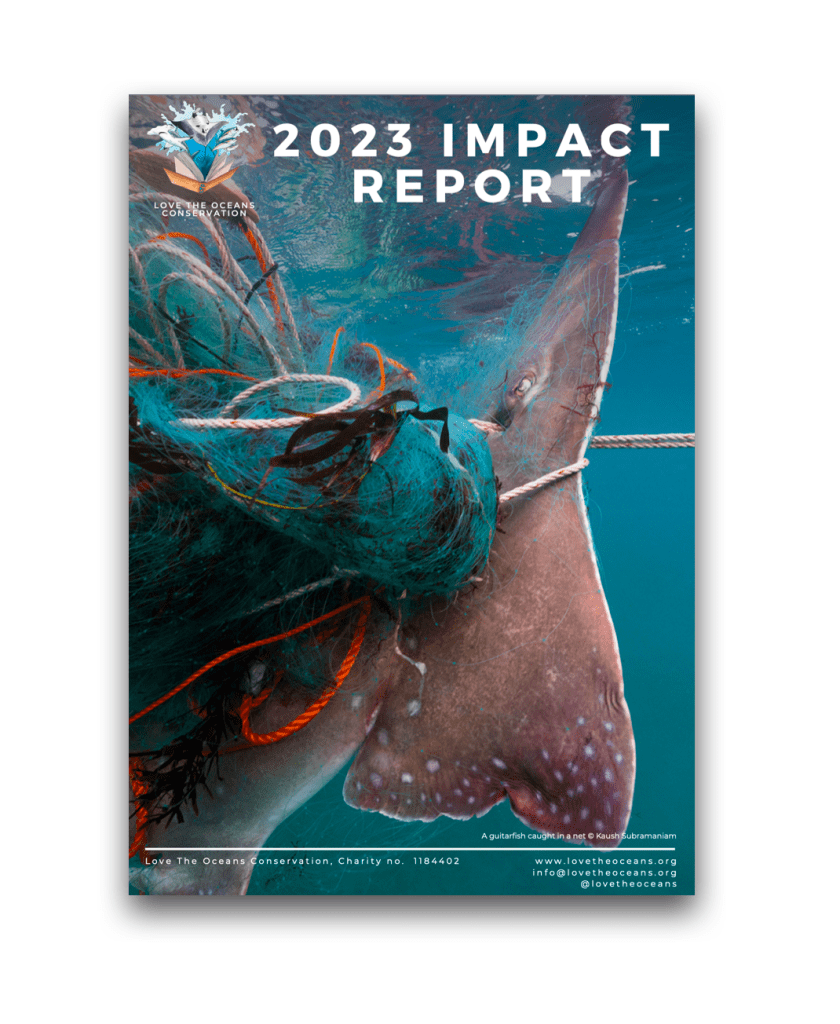
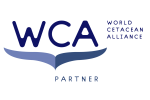


![Oceans New Logo WINNER 2021 FINAL BM[5] Oceans New Logo WINNER 2021 FINAL BM[5]](https://lovetheoceans.org/wp-content/uploads/elementor/thumbs/Oceans-New-Logo-WINNER-2021-FINAL-BM5-p75rusr4xoa6lpy31siy5h87ma4akt1j9oikbrp734.png)



